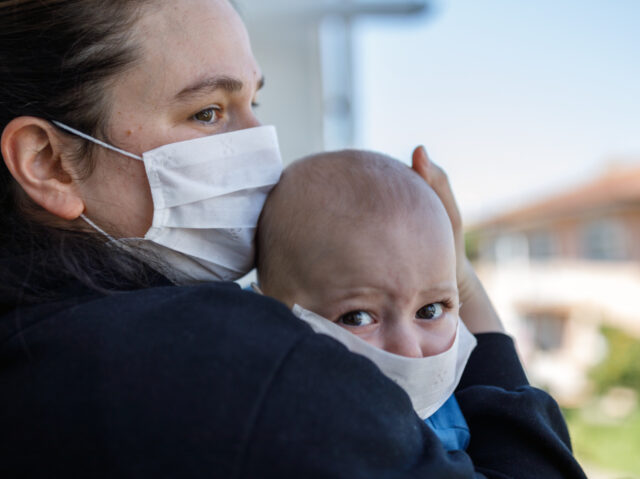Babies born during the early months of COVID lockdown in Ireland are less capable of speech and other forms of communication compared to children born before the pandemic.
Research conducted by scientists at the Royal College of Surgeons in Ireland has found that newborn children born in the first few months of the COVID pandemic have seen their social development stunted, with lockdown being listed as a possible cause for the phenomenon.
Experts from across the world have now repeatedly sounded the alarm over the impact pandemic lockdowns have had on the development of children, with evidence pointing to young people in Germany, the United Kingdom and United States all being affected by their time in social isolation during the pandemic.
According to the new data published by Irish researchers on Wednesday, this trend appears to also extend to newborns living in the island nation, with a study of 350 babies in Ireland finding that they were less capable of early speech, pointing, and waving “bye-bye” than their pre-COVID predecessors.
With post-lockdown babies also showing a greater ability to crawl compared to their historical counterparts, Professor Jonathan Hourihane — one of the scientists at the centre of the research — hypothesises that the change in development could be caused by children spending more time at home and on the ground than in the outside world.
“Our research showed that [lockdown] babies were more likely to be crawling at the age of 12 months than their [baseline] counterparts, which might be because they were more likely to have spent more time at home and on the ground, with siblings home from school and parents working from home or isolating, rather than out of the home in cars and strollers,” the academic said.
“However, lockdown measures may have impacted the scope of language heard and sight of unmasked faces speaking to them, while also curtailing opportunities to encounter new items of interest which might prompt pointing, and the frequency of social contacts to enable them to learn to wave,” he went on to say.
The researchers also emphasised that more investigation needs to be done in order to establish cause and effect in regard to the delayed development, with one scientist in particular expressing hope that those babies affected by the pandemic will regain lost ground once lockdown measures are finally put to bed.
Post-Lockdown Era: Children Entering Elementary School Unable to Say Own Name – Report https://t.co/YdM7gySKSU
— Breitbart London (@BreitbartLondon) June 13, 2022
While the Irish republic — which is currently ruled by a coalition of pro-globalisation parties — has historically at points experienced some of the most draconian lockdowns in western Europe, the experience of young Irish children in terms of delayed development during periods of lockdown appears to be far from unique.
Alarm bells have also been sounded by experts in Britain, the United States, and Germany over the impact the COVID pandemic has had on children, with one study published back in June claiming that some children entering Primary School in the UK were unable to say their own name.
A significant number of others were described as not being toilet trained, while some also had never once drunk out of a vessel that was not a baby bottle.
Children worldwide have also seemingly seen their levels of literacy as well as mathematical capabilities greatly stunted over the period of the pandemic, with many now seriously lagging behind their pre-COVID counterparts.
UNICEF’s Chief of Education, Robert Jenkins, has since said that the mere reopening of schools in the wake of the pandemic is no longer enough, and that institutions must work to ” rebuild children’s mental and physical health, social development and nutrition” in the wake of lockdown.

COMMENTS
Please let us know if you're having issues with commenting.